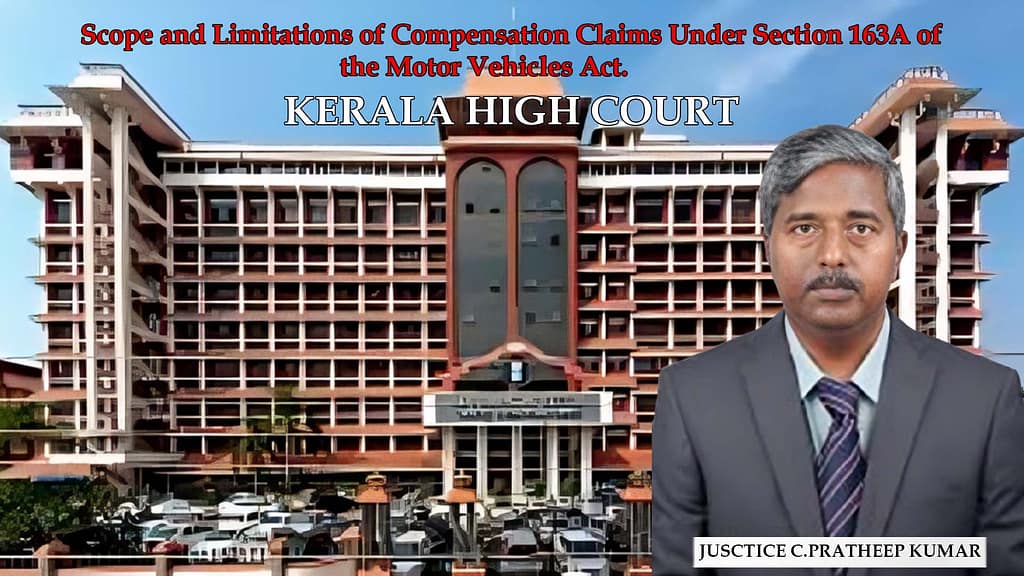
Section 163A of the Motor Vehicles Act, 1988, introduces a structured formula for compensation to victims of motor vehicle accidents, irrespective of fault. However, judicial interpretations, particularly by the Kerala High Court, have delineated the scope of this provision, emphasizing that claims under Section 163A are maintainable exclusively against the owner and insurer of the vehicle involved.
Key Judicial Interpretations:
Borrower’s Ineligibility for Compensation: In a notable case, the Kerala High Court addressed a situation where an individual borrowed a motorcycle and suffered a fatal accident due to his own negligent driving. The court held that the legal heirs of the deceased could not claim compensation under Section 163A from the insurer, as the deceased had “stepped into the shoes” of the owner. Since the accident resulted from the deceased’s own actions, and in the absence of personal accident coverage, the insurer was not liable.
Insurer’s Liability Limited to Third Parties: The court further clarified that the insurer’s liability under Section 163A is confined to third-party claims. If the deceased was operating the vehicle with the owner’s permission but was not covered under a personal accident policy, the insurer is not liable to pay compensation to the deceased’s legal representatives. This interpretation underscores that insurance coverage does not extend to the borrower in the absence of specific personal accident coverage.
Fault-Based Defense Under Section 163A: In another pertinent case, the Kerala High Court examined whether insurers could invoke the defense of the deceased’s negligence under Section 163A. The court concluded that, unlike Section 140, Section 163A does not explicitly exclude the consideration of fault. Therefore, insurers can defend against claims by establishing that the accident was caused due to the deceased’s own negligence, thereby absolving themselves from liability.
Implications:
Claims Against Owner and Insurer Only: The consistent judicial stance is that claims under Section 163A are maintainable solely against the owner and the insurer of the vehicle. Third parties or borrowers without personal accident coverage cannot claim compensation under this section.
Necessity of Personal Accident Coverage: For borrowers or individuals driving a vehicle with the owner’s permission, it is imperative to have personal accident coverage. In the absence of such coverage, neither the owner nor the insurer is liable to pay compensation under Section 163A.
Consideration of Fault: While Section 163A provides for no-fault liability, courts have allowed insurers to use the defense of the deceased’s negligence. This means that if the deceased’s own actions led to the accident, insurers might not be held liable for compensation under this section.
These judicial interpretations by the Kerala High Court provide clarity on the applicability of Section 163A, delineating the boundaries of liability for owners, insurers, and borrowers of motor vehicles.